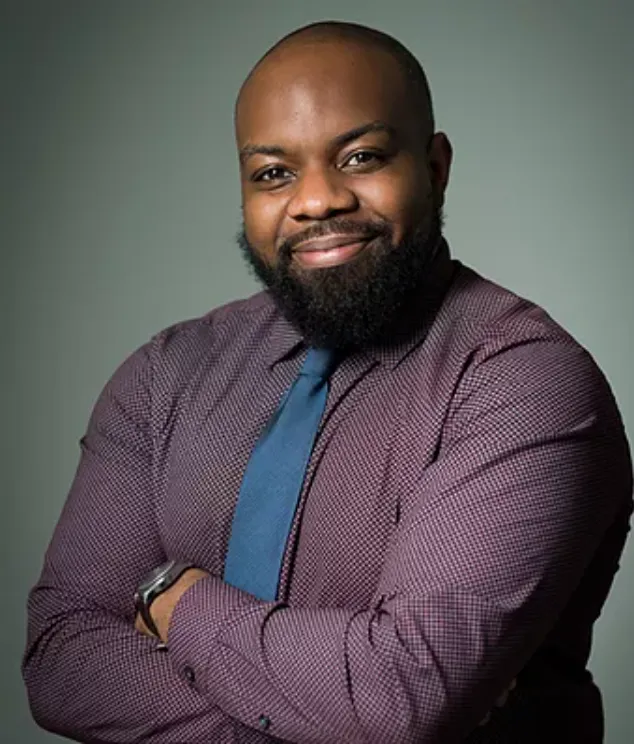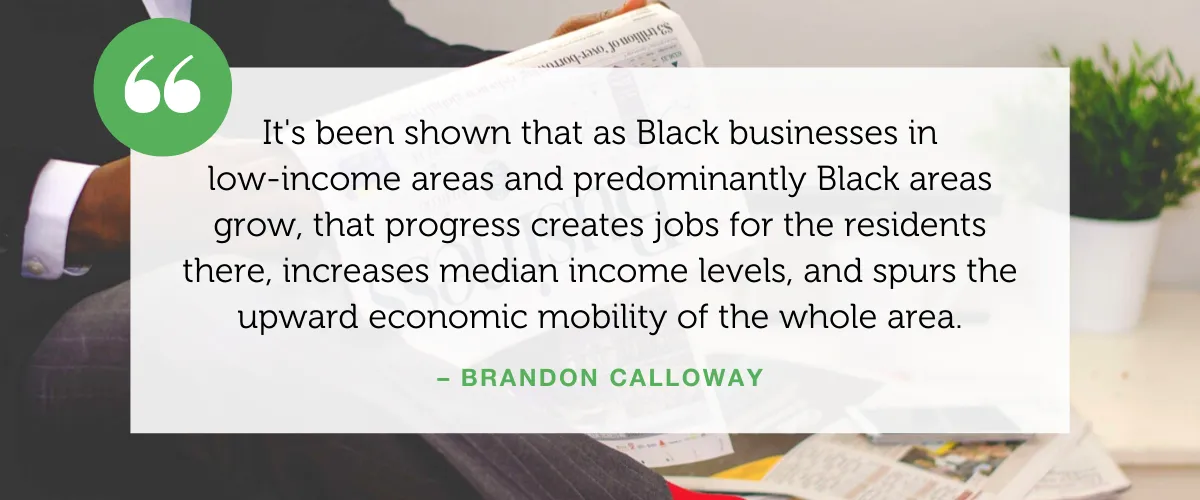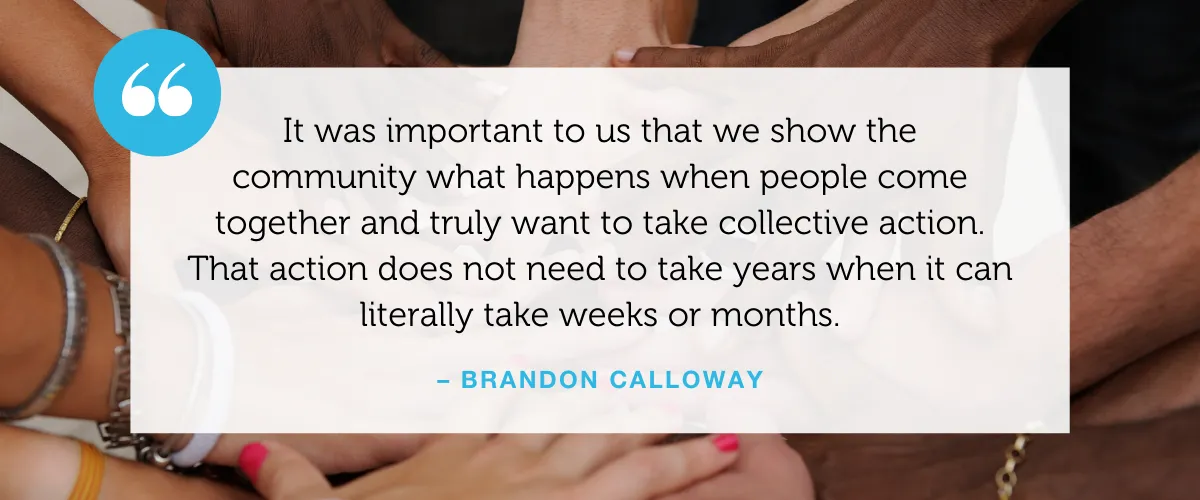After the police killing of George Floyd last summer, racial justice advocates have shone a spotlight on how racism is deeply embedded in American systems — the economy being one of them. In line with their mission to transform capitalism as a force for good, many Certified B Corporations are focusing their efforts on becoming anti-racist businesses. B Corps and other businesses have an opportunity to look within their own communities and identify gaps where broad-based goals of racial equity are not being met.
Venture capitalists award less than 1% of their investment capital to Black entrepreneurs. At the same time, banks are about 30% more likely to approve loans for white-owned businesses than for Black-owned businesses. Our economic system was founded on racial oppression, and as we seek to dismantle the systems that perpetuate it, we must address the historic disadvantage Black-owned businesses face when accessing loans and capital.
GIFT (Generating Income for Tomorrow) is a Kansas City-based nonprofit whose founders — Brandon Calloway, Cornell Gorman, and Christopher Stewart — identified this problem in their community and came together to do something about it. By providing grants to local Black-owned businesses, specifically those operating in low-income areas, they’re working to fill the gaps left by a lack of intergenerational wealth and decades of discriminatory practices, such as redlining. GIFTKC awarded its first two $10,000 grants within a few months of starting its work, providing much-needed support in a hyper-segregated city during a pandemic that has disproportionately affected Black communities.
While GIFTKC is a localized example, it’s a structure that can be replicated anywhere — for nonprofits and for-profits alike. By leveraging a crowdfunding platform with the power of personal and professional networks, GIFTKC demonstrates how to create a model for lasting change that draws on public support and shifts funding toward Black-owned businesses.
Brandon Calloway is the co-founder and Executive Director at GIFTKC. In this Q&A, he discusses racial inequities and shares the creative solution he leads to support the Black business community in his city.

What’s the origin story of GIFTKC?
Brandon Calloway: It started with a Facebook group called Black Owned Business-Kansas City (BOBKC), which at the time had about 15,000 members. Our co-founder, Christopher Stewart, made a post about the frustrations of redlining in KC and lack of access to capital for Black business owners as opposed to their non-Black counterparts. His point was that there were 15,000 people in this group, and if we all donated $10 a month, we could take that and invest it and build up businesses in the Black community for ourselves, without having to rely on anybody else and without sitting around and complaining about how we can’t get access to capital. That resonated with Cornell and myself, and the two of us reached out to Christopher. Our question to him was: How serious about this are you?
I have 10 years of background in business and two years in nonprofit management. I came in to help get it off the ground, and we wasted no time. That original Facebook post was April 30, 2020, our first conversation was May 2, and our paperwork was filed May 5.
What were your original goals?
We spent a lot of time talking about if we wanted to do grants, loans, or equity percentage. We were really committed to providing grants, not providing microloans, and not taking anybody’s equity. We recognized that there were business owners, specifically those operating on Troost Avenue, the dividing line of racial segregation in Kansas City, that had great plans and the skills to expand but lacked capital. It was important for us to be able to help in that way — to provide capital they may not have otherwise, whether that’s seed money, or for a long-standing business moving into another phase of growth. We wanted to be there, support their brand, and help them grow.
Why is this resonating with people?
People are actively looking for ways to make a difference, and it’s important to provide ways for them to do so. I think people are more eager, willing, and likely to share information about us because of the [racial justice] conversations going on right now. It’s elevated the need for action, and a lot of people are interested in racial equity now for the first time.
Kansas City is one of the top hypersegregated cities in America. That’s not hyperbole; it’s a designation by the federal government. According to the Urban League of Greater Kansas City, the Black median household income is only 54% of white median household income, and the percentage of black households in poverty (24.67%) is substantially higher than the percentage of white households in poverty (7.97%). Those Black communities are almost all east of Troost. There’s a stark difference between the two sides.
All of that was true before, but if we would’ve said this then, fewer people would have been willing to listen. Now more people are in a space where they’re trying to understand structural racism. People are a lot more receptive to the rationale behind the work we’re doing.

How did you identify the needs of the Black business community in Kansas City and then structure your nonprofit model around them?
We spent about a month reaching out to businesses in the area. We found out that most businesses needed about $20,000 to $30,000, so we structured our program to give out grant amounts of $10,000, $25,000, and $50,000 to best meet the needs of the Black business community in Kansas City. In that same outreach, we found it was hard for the public to find where Black businesses were. Business owners didn’t feel like they had a lot of community or collaborative support, and a lot of them said they needed help with marketing and bookkeeping.
So in our program, all grantees sign up for Black Privilege, which is a Black business directory app where anybody can find a Black business near them. It helps the business with marketing and exposure. Grantees also sign up for Black Excellence, which serves as a sort of local Chamber of Commerce for those Black business owners to help with networking and collaboration. We’ve also partnered with an organization called Entrepreneurial Business Basics (EBB) to help cover the cost of 12 months of business consulting to help with their bookkeeping and marketing. When a business receives a grant from GIFTKC, thanks to those three partnerships, they’re getting additional services that will aid the growth and longevity of their success.
What does a community look like when Black businesses are thriving?
It’s been shown that as Black businesses in low-income areas and predominantly Black areas grow, that progress creates jobs for the residents there, increases median income levels, and spurs the upward economic mobility of the whole area. Then there’s more money to put back into those local businesses, which means they can hire more people, they can grow, and it becomes a cycle. We were trying to get the ball rolling on this huge cycle, to replace this old system of systemic racism and oppression. That is the original goal.
Why do you think your messaging and model have been so effective?
The scary thing in the beginning was wondering: How do we get people to listen to us? The reality is that while we had defined our mission and our vision, we weren’t in a silo. The mission resonated with people immediately. People growing up or living in Kansas City understand the unspoken levels of segregation that are present. They understand there’s a need to address it, but it comes down to people saying, “I don’t know what the need is, I don’t know what the action is,” so it remained unfilled. As soon as we started identifying this need and speaking about what we’re doing to address it, it felt like people had been waiting for something like this to come along.
Can you tell us about your debut grant?
When you think of Black-owned businesses in Kansas City, a lot of people automatically think of the success of Ruby Jean’s Juicery. They’re the only all-healthy establishment on the east side. They’re active in the community. But they were in real danger because of the pandemic, operating at about 10–15% of their usual sales. The brand’s very existence was threatened by a second wave of pandemic shutdowns.
I was surprised when their owner, Chris Goode, told me about the danger they were in. There was this assumption that, as a strong presence with popularity, they’d be fine. That assumption was hurting them because people weren’t actively supporting them as much. So for them to be in that situation, coupled with that perception of them thriving, was a danger. Not only was the grant helpful for them, but helping to elevate the struggles they were facing was also a big deal.
We really did not want to be an organization that came on, got everybody excited, and spent a year fundraising before we did anything. It was important to us that we show the community what happens when people come together and truly want to take collective action. That action does not need to take years when it can literally take weeks or months. We were happy to be able to help Ruby Jean’s and to show the community the type of impact that can be had when enough people come together.

Are you looking to expand into other cities?
We’re absolutely looking to expand into other cities. Our goal is to raise enough money here in Kansas City, have one or two years of proven success, and move into other cities by collaborating with the local leaders of those communities. We want to help bring prosperity to all of the historically redlined areas of the country.


